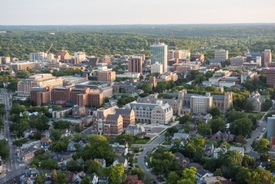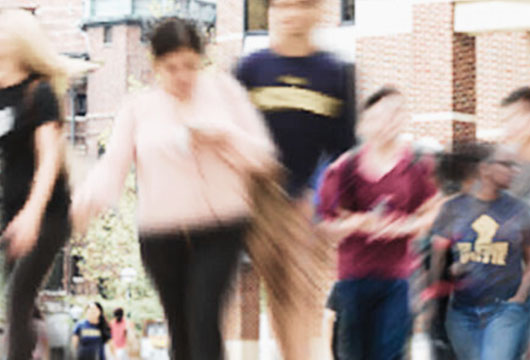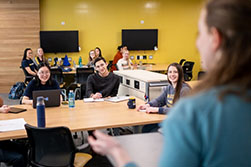| Understanding "Nontraditional" Student Experiences in and out of U-M Classrooms Wed, 11/15/2017 What do you know about the students in your classroom? How many of them are first generation? Who among them has served in the military? Which ones are in recovery for substance use? Who has children at home that they are responsible for? Are there other dimensions of your students' experiences that might fall outside of 'traditional' expectations for U-M students? According to a recent focus group study conducted by U-M’s Center for the Education of Women, 92% of student respondents who identify as “nontraditional” identified multiple markers of nontraditional status and 38% percent of respondents described their nontraditional status as a combination of five or more identities or life experiences. While some of these statuses were linked to visible identity categories, many of them were based on experiences that are not readily legible (e.g., being a veteran or being a commuter). However, these nontraditional experiences play a key role in how students experience the university, both inside and beyond the classroom. So how can instructors better understand these experiences to leverage diversity in the classroom and create inclusive learning environments? Read more |
| Starting a New Term in the Wake of Charlottesville Violence Mon, 08/28/2017
As we move into the semester, we offer some guidance about related questions and concerns we have been hearing from a range of U-M instructors. Each topic below can be expanded by clicking the small arrow at the left. Read more |
| CRLT Services in Summer Wed, 06/28/2017
For our full range of consultation services, see this page. Read more |
| Provost's Teaching Innovation Prize Winners Mon, 04/24/2017 Five outstanding projects from across campus have been selected as winners of the annual Provost's Teaching Innovation Prize (TIP). You can learn more about these projects at the opening to the 2017 Enriching Scholarship conference. At 10:00am on Monday, May 1, in the Michigan Union's Rogel Ballroom, Vice Provost James Hilton will present the winning projects. Prior to the ceremony, a 9:00am poster fair and strolling breakfast in the same location offer the U-M community a chance to meet the faculty teams behind the TIP projects, as well as teams that have conducted projects through the Investigating Student Learning grant funded by CRLT and the Office of the Vice Provost for Global Engagement and Interdisciplinary Academic Affairs. Registration is appreciated.
This year's winning projects include: Read more |
| Inclusive Teaching @ Michigan: May 2017 Series Tue, 04/18/2017 Faculty and GSIs from across campus are invited to register for the second annual Inclusive Teaching @ Michigan series. Instructors can register for any or all of over 15 workshops, panels, and presentations focused on a range of inclusive teaching topics. Sessions are free and open to U-M instructors in any field. Events will kick off with a session featuring the CRLT Players theatre program, focused on building resiliently inclusive classroom climates. Throughout the series, CRLT facilitators will be joined by collaborators including The Program on Intergroup Relations (IGR), the Center for Engaged Academic Learning (CEAL), the Ginsberg Center, Women in Science and Engineering (WISE), and the Lecturers' Employment Organization's (LEO's) Anti-Racism Task Force to offer sessions that help instructors develop awareness and skills in areas including:
Some sessions are designed particularly for instructors who are relatively new to conversations about inclusive teaching. Most are designed for a broad range of instructors, including those who are seeking to develop their established inclusive teaching practices. See the full schedule of events here. Anyone who participates in an Inclusive Teaching @ Michigan workshop is invited to join us at a catered closing lunch where we will reflect together upon the series and ways to continue developing the conversation about inclusive teaching among U-M colleagues. Read more |
| GSIs Honored for Excellent Teaching Tue, 04/11/2017
The four Towner awardees (pictured right) were honored at the College of Engineering's Student Leaders and Honors Brunch on Sunday, March 19. Rackham will be hosting a public awards ceremony to honor its twenty prize-winners, along with outstanding faculty mentors, on Monday, April 17, 3:30-5:30pm, in the Rackham Ampitheatre. The keynote speaker will be Cagliyan Kurdak, Professor of Physics. For more information, including the names and departments of all of the winners, see this Rackham page and this College of Engineering page. Photos taken by Steve McKenzie. Read more |
| Teaching in the Current Political Climate Wed, 02/01/2017
We have assembled some guidance in response to relevant questions and concerns we have been hearing from instructors in recent days. The following topics are looming large for many. Each topic can be expanded by clicking the +. Read more |
| Explore, Apply for, and Thrive in Academic Jobs: New Resources Online Fri, 01/20/2017 Winter: in many fields, this time of year is filled with faculty position interviews, campus visits, and job talks. You might currently be deep in an academic job search process or watching others grapple with it. You may be curious about the kinds of jobs that PhD’s hold outside the academy. In this competitive academic job market, many graduate students and postdocs are doing both--investigating the market for academic jobs while also exploring alternate career paths. To support the needs of current and future faculty, CRLT has drawn together a broad set of Preparing Future Faculty web resources that can help academics explore, apply for, and thrive in a wide variety of jobs. Many of the linked documents, videos, and websites originated from a CRLT-Rackham collaboration that took the form of an annual Preparing Future Faculty conference. The collection thus contains a wealth of resources that have been developed collaboratively over a decade of Preparing Future Faculty efforts at U-M. While graduate students and postdocs will find these resources particularly useful, academics at all stages will find valuable guidance and information here. For example, we highlight strategies for success at any point in your academic career, from graduate student to postdoc to full professor. In addition, many graduate students and postdocs may be interested in exploring career options outside the academy that draw on the skills they are developing as scholars and teachers inside the academy. Read more |
| Returning to the Classroom after the Election Wed, 11/09/2016 At CRLT, we have been hearing from many instructors seeking guidance on how to talk with their students in the days following the election. Depending on many factors, you may or may not choose to engage students in conversation about the election results. In either case, we hope the following thoughts will be helpful.
If you do choose to engage students on this topic, it will be important to acknowledge the range of perspectives and intense emotions that are likely present in your classroom. These guidelines on discussing difficult topics may be helpful for framing a conversation where students with diverse experiences and points of view can engage productively with one another. If you do not choose to address the topic of the election substantively but still want to acknowledge it, you can do the following:
If a student raises the election as a topic when you hadn't planned to discuss it, these resources may be helpful if you want to engage everyone in conversation. If you do not feel prepared to do so, you can recognize why the student might want to have the conversation, but explain that you want to think further about whether and how to engage it as a class because it is important to do so carefully given the intense emotions and divergent perspectives around this election. Read more |
| Responding to Incidents of Hate Speech Tue, 09/27/2016
The recent incident of hate speech that occurred at U-M is part of a disturbing national trend. A recent article in Inside Higher Education referred to “an epidemic of racist incidents at campuses across the country.” These upsetting events in combination with the heightened rhetoric of the election campaign have the potential to increase the stress levels experienced by members of the campus community, especially those from groups targeted by hate speech. It is useful to keep in mind that such incidents may still be on students’ minds when they enter your classroom, and that such incidents take a toll on faculty and GSIs as well. What can instructors do?
Read more |


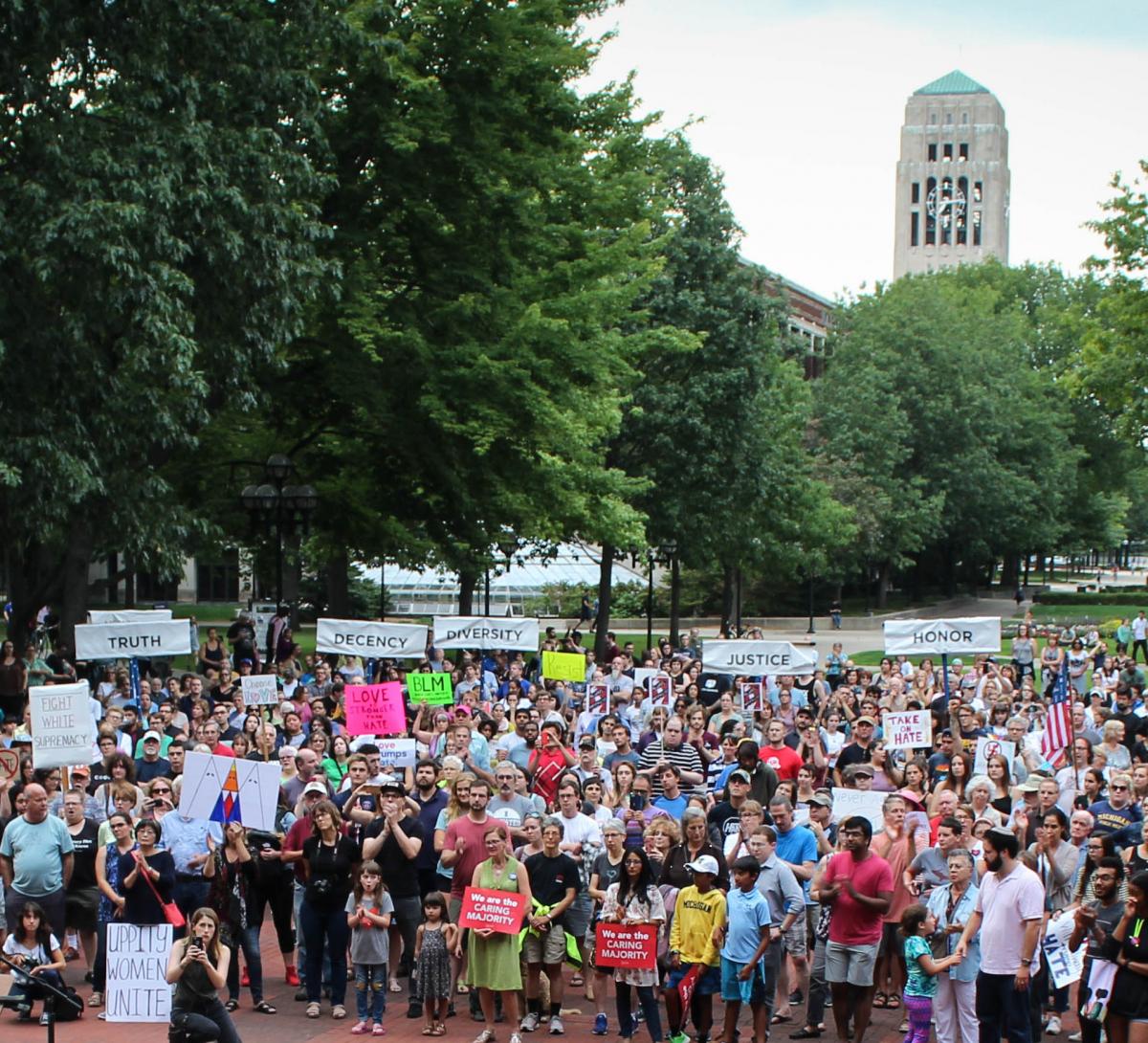 We return to teaching this semester in the wake of deadly white supremacist violence in Charlottesville and groundswells of resistance around the country. At such a critical moment in our nation’s history, instructors across campus are especially aware of how broader national conversations, conflicts, and movements are likely to enter and affect their classrooms, labs, and studios. As college
We return to teaching this semester in the wake of deadly white supremacist violence in Charlottesville and groundswells of resistance around the country. At such a critical moment in our nation’s history, instructors across campus are especially aware of how broader national conversations, conflicts, and movements are likely to enter and affect their classrooms, labs, and studios. As college 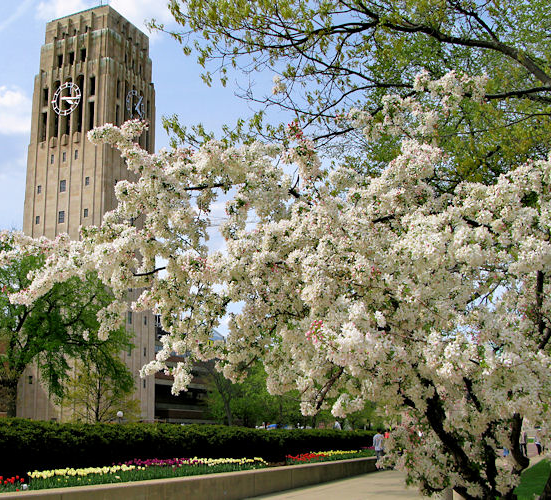 Is CRLT still available to support U-M teachers during the summer? Indeed, we are! If you're teaching a course in one of these terms, you can request a
Is CRLT still available to support U-M teachers during the summer? Indeed, we are! If you're teaching a course in one of these terms, you can request a 
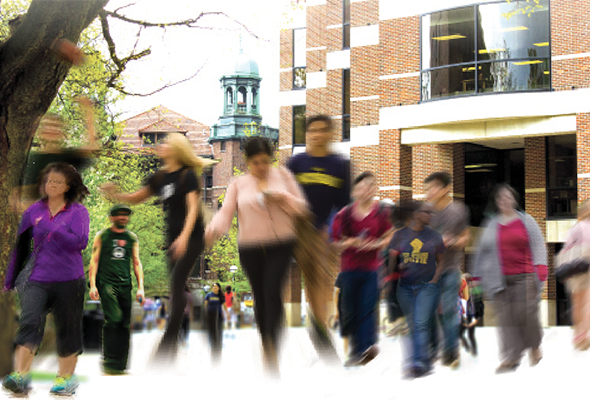
 GSIs across campus are being recognized for their excellent teaching. CRLT warmly congratulates winners of Rackham's Outstanding GSI Award and the College of Engineering's Richard and Eleanor Towner Prize for Outstanding GSIs. Selected from large pools of nominees, all of these instructors have demonstrated extraordinary commitment, creativity, and overall excellence in their teaching.
GSIs across campus are being recognized for their excellent teaching. CRLT warmly congratulates winners of Rackham's Outstanding GSI Award and the College of Engineering's Richard and Eleanor Towner Prize for Outstanding GSIs. Selected from large pools of nominees, all of these instructors have demonstrated extraordinary commitment, creativity, and overall excellence in their teaching. In a recent blog post, we addressed challenges and opportunities in
In a recent blog post, we addressed challenges and opportunities in 